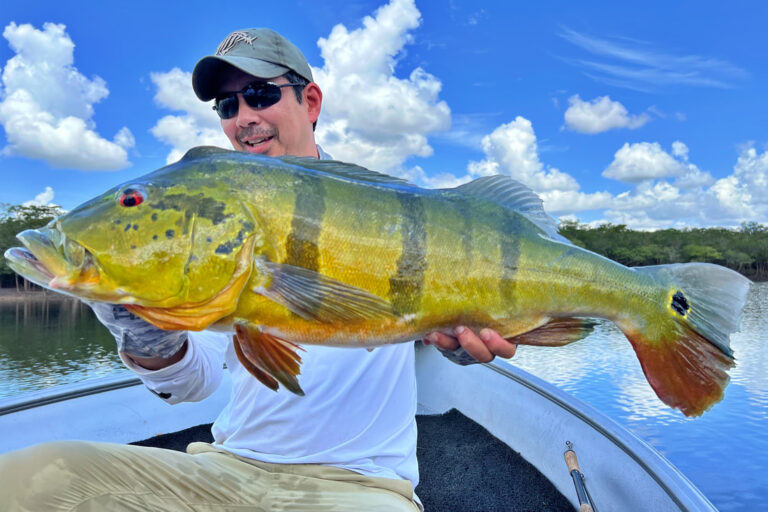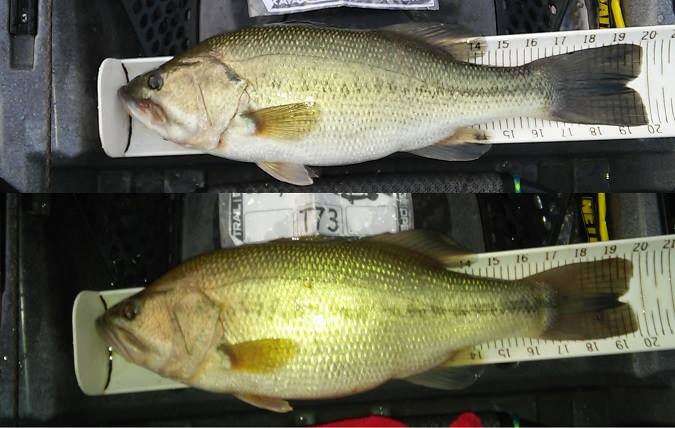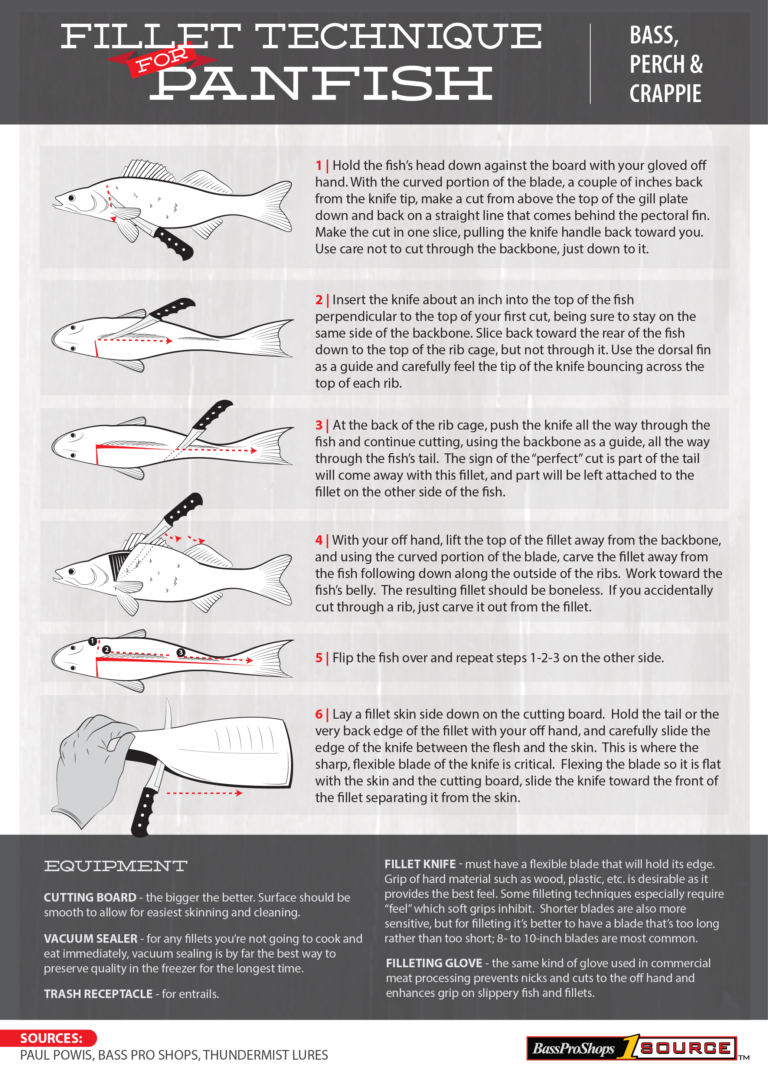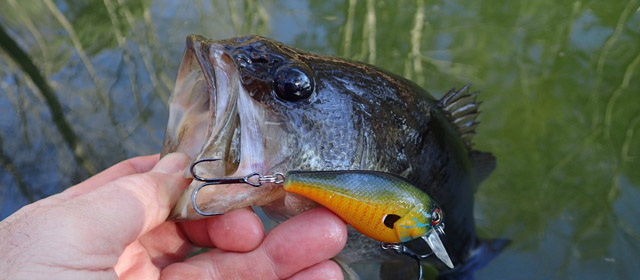How to Bass Fish With a Frog?
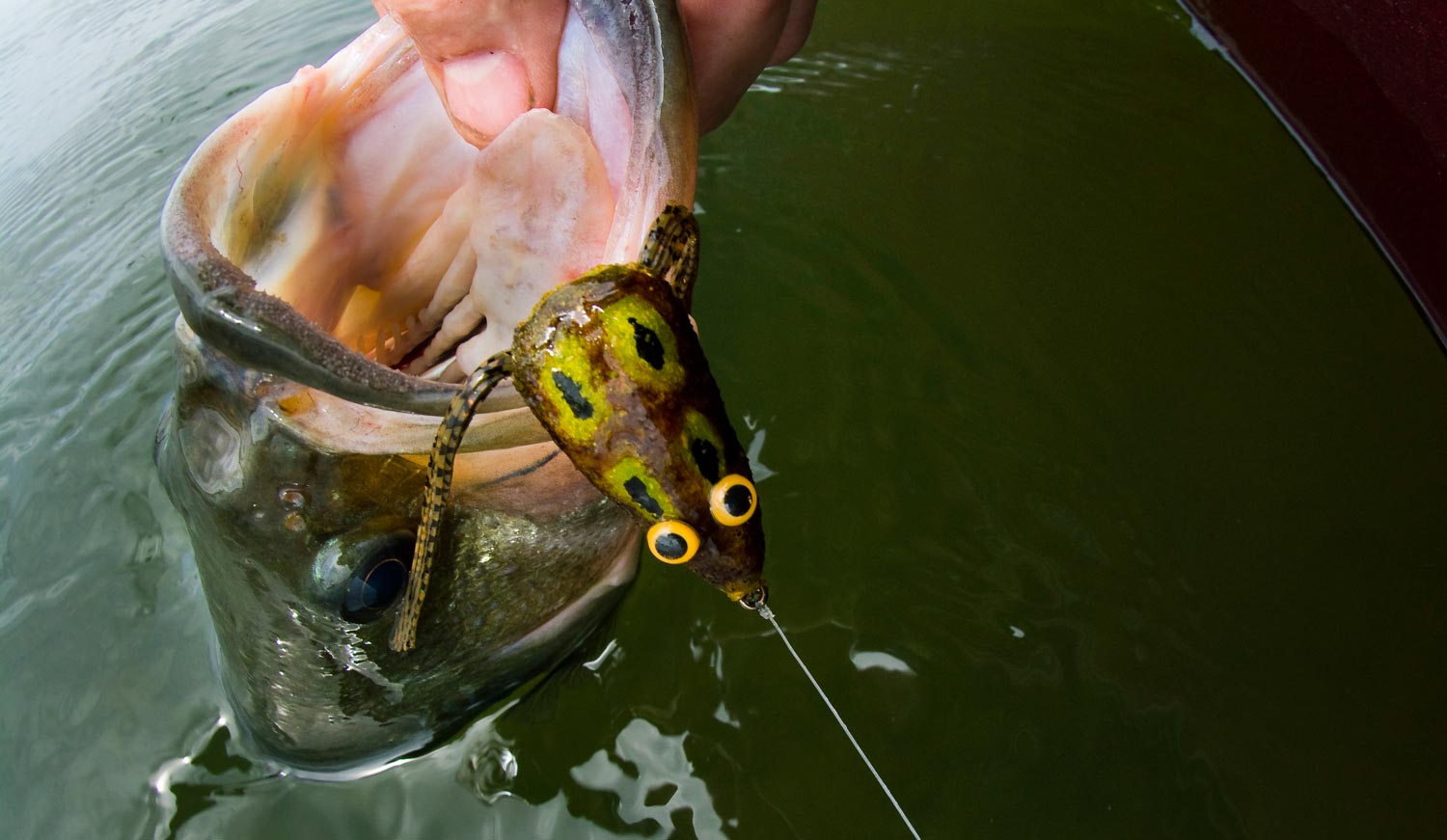
To bass fish with a frog, cast near cover and retrieve with varied twitches. Ensure the frog lure is weedless to navigate vegetation.
Bass fishing with a frog lure is an exhilarating experience that can yield impressive results. Anglers target areas with heavy cover, such as lily pads, logs, and grass mats where bass hunt for prey. The key to success lies in using a weedless frog lure, which allows for snag-free movement over the surface.
A strategic cast followed by a deliberate retrieve, imitating the movement of a real frog, provokes aggressive strikes from lurking bass. This technique requires patience and precision, as it’s all about enticing the fish with the lure’s realistic hopping action.
Mastering frog fishing not only increases your chances of catching bass but also adds an exciting tactic to your angling repertoire.
The Allure Of Frog Fishing For Bass
Frog lures mimic real amphibians’ movements and sounds in water. Bass often mistake them for actual frogs. This misconception entices bass to strike. Frog fishing excels in areas with heavy vegetation.
Shallow waters, lily pads, and overhanging trees create ideal habitats. Here, bass hide and hunt for prey. The frog lure’s weedless design prevents snagging, allowing it to glide over mats and vegetation clumps with ease. It’s a topwater thrill for anglers.
| Habitat | Reason Frog Fishing Works |
|---|---|
| Lily pads | Natural frog environment |
| Overhanging trees | Bass patrol these areas |
| Weedy flats | Frog lures move freely |
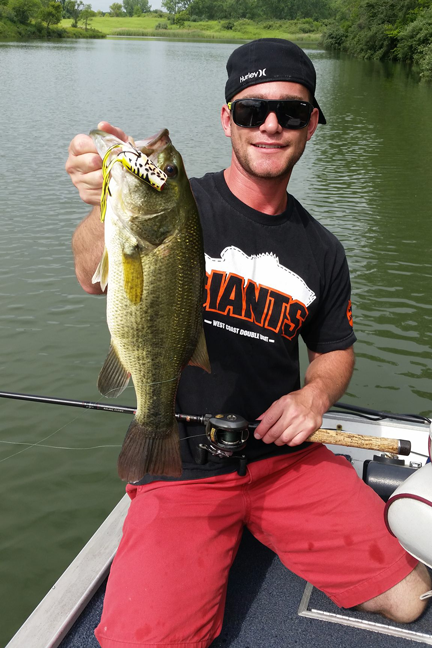
Credit: www.gameandfishmag.com
Choosing The Right Frog Lure
Choosing the right frog lure is crucial for bass fishing success. Types of frog lures include hollow-bodied, soft plastic, and popping frogs.
Hollow-bodied frogs are great for thick cover and weed mats. Soft plastic frogs excel in open water and around edges. Popping frogs create noise and disturbance on the water’s surface. They mimic struggling prey to attract bass.
The best color and size depend on the bass’s natural prey and the water’s clarity. Realistic colors match the local frogs. Bright colors work well in muddy or stained water.
Size should mimic the prey but also be big enough to entice larger bass. A good rule is to start with a medium-sized lure and adjust from there.
Gear Up For Frog Fishing
Choosing the right gear for frog fishing means much. The ideal rod should be heavy or medium-heavy and quite long. Typically, a length of 7 to 7.5 feet works best. This long rod will let you cast frogs far. It also helps you control the lure through the weeds.
Pair your rod with a high-speed reel for quick responses. A 7:1 gear ratio reel allows for swift line retrieval. This matters during those fast-paced frog fishing moments.
Line type is critical. Braided line with 30-50 pounds test is a must. It’s strong and it cuts through vegetation. Choose a simple, reliable knot, like the Palomar, when tying the frog. This knot is both easy to tie and very strong, perfect for big bass.
Mastering The Technique
Mastering bass fishing with a frog requires precise casting techniques. Practice makes perfect, so aim your casts near lily pads or logs where bass might hide. Use a smooth, sidearm motion to keep the frog lure low and avoid tangles.
As for the art of the retrieve, it’s all about patience and rhythm. Begin with a steady, slow retrieve allowing the lure to mimic a real frog’s movement. Make the lure hop over water with gentle twitches of your rod tip.
Observe the water’s surface for bass response. Changes in retrieve speed can trigger strikes from lurking bass. Crafting these skills over time will lead to successful bass fishing adventures.
Striking And Setting The Hook
Timing your strike is crucial in bass fishing with a frog. Watch the water’s surface keenly for the right moment. A bass may nip the frog or engulf it fully. Wait until you feel the weight of the fish before setting the hook. This pause ensures a secure hook-up.
For hook set mechanics, use a short, sharp motion. Make sure you have line firmly secured and rod tip pointed up. This action pins the hook in the bass’s mouth strongly. Remember to keep the line tight, as any slack can mean a missed fish.
Best Conditions And Times For Frog Fishing
Bass fishing thrives under certain weather conditions. Sunny days can increase activity, making bass hunt for shade. This is ideal for frog lures. Overcast skies also present a prime opportunity as bass feel less exposed and roam more freely. Stable weather leads to consistent fishing conditions.
Fishing during early morning or late afternoon proves most effective. These times offer low light which is perfect for frog fishing. Spring through fall marks the peak season for using frog lures. Specifically, in spring, post-spawn, and in early fall bass are most active.
This table representing optimal fishing times:
| Season | Time of Day |
|---|---|
| Spring | Early Morning |
| Summer | Late Afternoon |
| Fall | Early Morning/Late Afternoon |
Frequently Asked Questions
How Do You Catch Bass With A Frog?
To catch bass with a frog lure, cast near lily pads or weeds. Use a steady retrieve with occasional twitches to mimic a live frog. Strike firmly when a bass strikes.
Are Frogs Good For Bass Fishing?
Yes, frogs are effective for bass fishing due to bass preying on them naturally. Frog lures work well in weedy or lily-pad-covered waters.
How Do You Rig A Frog For Fishing?
Select a weedless hook for unobstructed movement. Thread the hook through the frog’s nose and out its back. Ensure the frog’s legs dangle for realistic action. Use a stopper knot to prevent sliding. Cast near lily pads or logs where bass lurk.
What Color Frogs Are Best For Bass Fishing?
Green and brown frog lures are highly effective for bass fishing, mimicking natural frog colors. Opt for brighter hues in murky water.
Conclusion
Mastering the art of bass fishing with a frog lure takes patience, skill, and practice. By choosing the right equipment and honing your technique, you’ll significantly increase your catches. Embrace the thrill of the chase and the satisfaction of a well-executed catch.
Happy fishing, and may your next adventure be fruitful!
